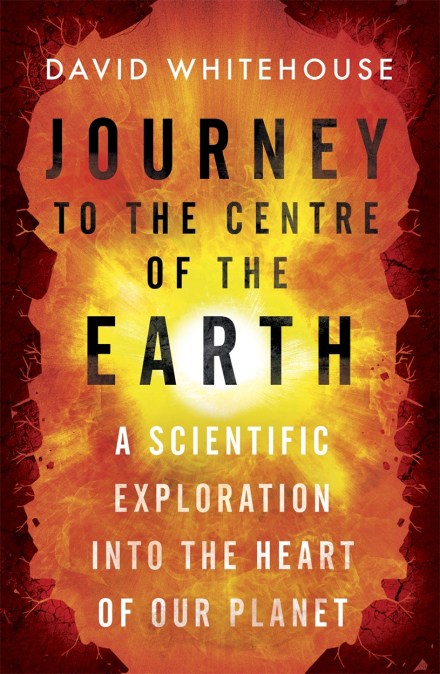The journey to the centre of the earth is a voyage like no other we can imagine.
Over 3,000 km below the earth’s surface an extraordinary inner world the size of Mars awaits us.
Dive through the molten iron of the outer core and eventually you will reach a solid sphere – an iron-clad world held within a metal sea and unattached to anything above.
At the earth’s core is the history of our planet written in temperature and pressure, crystals and minerals . . .
Our planet appears tranquil from outer space. And yet the arcs of volcanoes, the earthquake zones and the auroral glow rippling above our heads are testimony to something remarkable happening inside . . .
For thousands of years these phenomena were explained in legend and myth. Only in recent times has the brave new science of seismology emerged. One hundred and fifty years after the extraordinary, imaginative feat of Jules Verne’s JOURNEY TO THE CENTRE OF THE EARTH, David Whitehouse embarks on a voyage of scientific discovery into the heart of our world.
Over 3,000 km below the earth’s surface an extraordinary inner world the size of Mars awaits us.
Dive through the molten iron of the outer core and eventually you will reach a solid sphere – an iron-clad world held within a metal sea and unattached to anything above.
At the earth’s core is the history of our planet written in temperature and pressure, crystals and minerals . . .
Our planet appears tranquil from outer space. And yet the arcs of volcanoes, the earthquake zones and the auroral glow rippling above our heads are testimony to something remarkable happening inside . . .
For thousands of years these phenomena were explained in legend and myth. Only in recent times has the brave new science of seismology emerged. One hundred and fifty years after the extraordinary, imaginative feat of Jules Verne’s JOURNEY TO THE CENTRE OF THE EARTH, David Whitehouse embarks on a voyage of scientific discovery into the heart of our world.
Newsletter Signup
By clicking ‘Sign Up,’ I acknowledge that I have read and agree to Hachette Book Group’s Privacy Policy and Terms of Use
Reviews
We know more about the cosmos above our heads that about what's beneath our feet ... While volcanic lava holds mineralogical clues, and seismographs and neutrinos reveal strata secrets, great unknowns remain about what lies beneath. What is the mantle made of? How does the core generate Earth's magnetic field? How deep can life survive? Author and broadcaster David Whitehouse delves into these questions using Jules Verne's Journey To The Centre of the Earth as a background narrative. Serving up intriguing information about the first seismoscope and the so-called 'deep diamonds', he travels from the crust to the core, explaining everything from continental drift to the dynamo theory
In this look at the unexplored and unexplorable inner core of our planet, David Whitehouse discovers a world that is surprising and enigmatic... The description of what lies beneath our feet is almost frightening ... In the course of his travels through the Earth, Whitehouse reveals insights into our planet's origins, and of how understanding what's required to sustain life on Earth may help to direct our quest for life in space
Whitehouse takes readers on a richly rewarding journey through space and time in this scientific travelogue.
I was inspired by a sense of wonder about the ground beneath my feet
Readable and wide-ranging ... [Whitehouse] is adept at mixing the history of Earth science - beginning with Edmond Halley's maritime expedition to measure Earth's magnetic field around 1700 - with comments by current researchers
Revealing some of the wonder of what is beneath our feet, [Whitehouse] looks at the science of seismology and explains how far we have already gone. Deep mines, volcanoes, earthquakes, underground oceans, and the nature of life are all subjects of inquiry. Of particular interest to non-scientists are Whitehouse's reflections on literature and how science fiction has reflected man's changing notions of science, religion and the origins of our world





